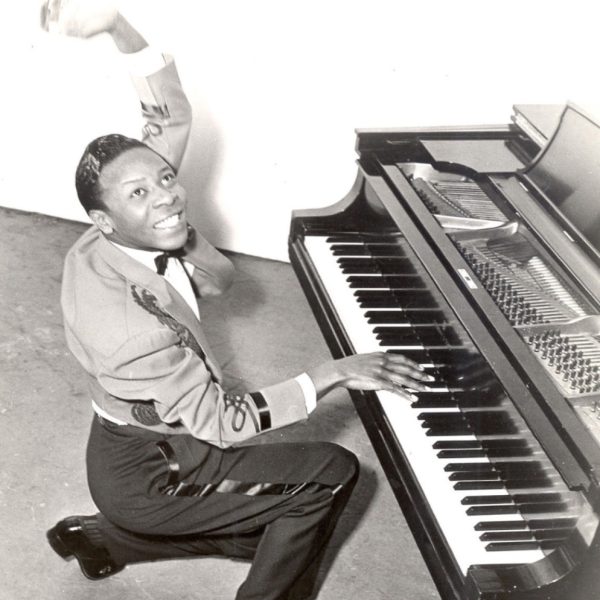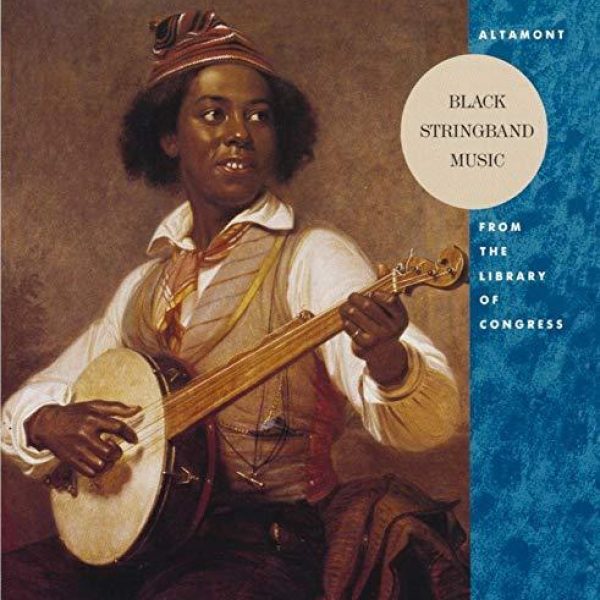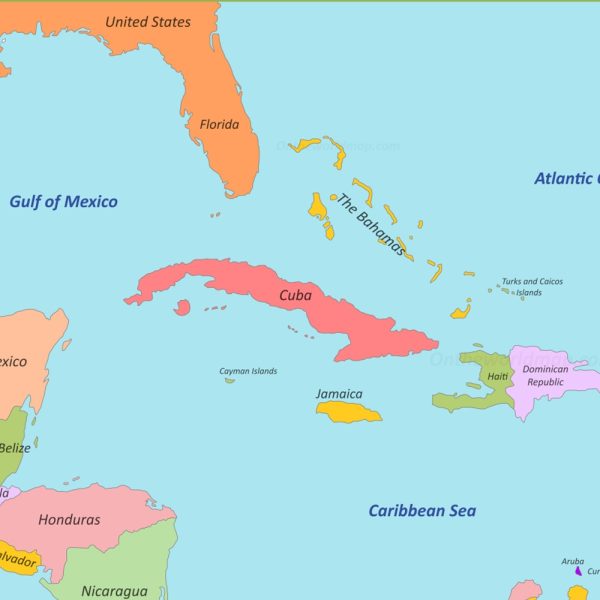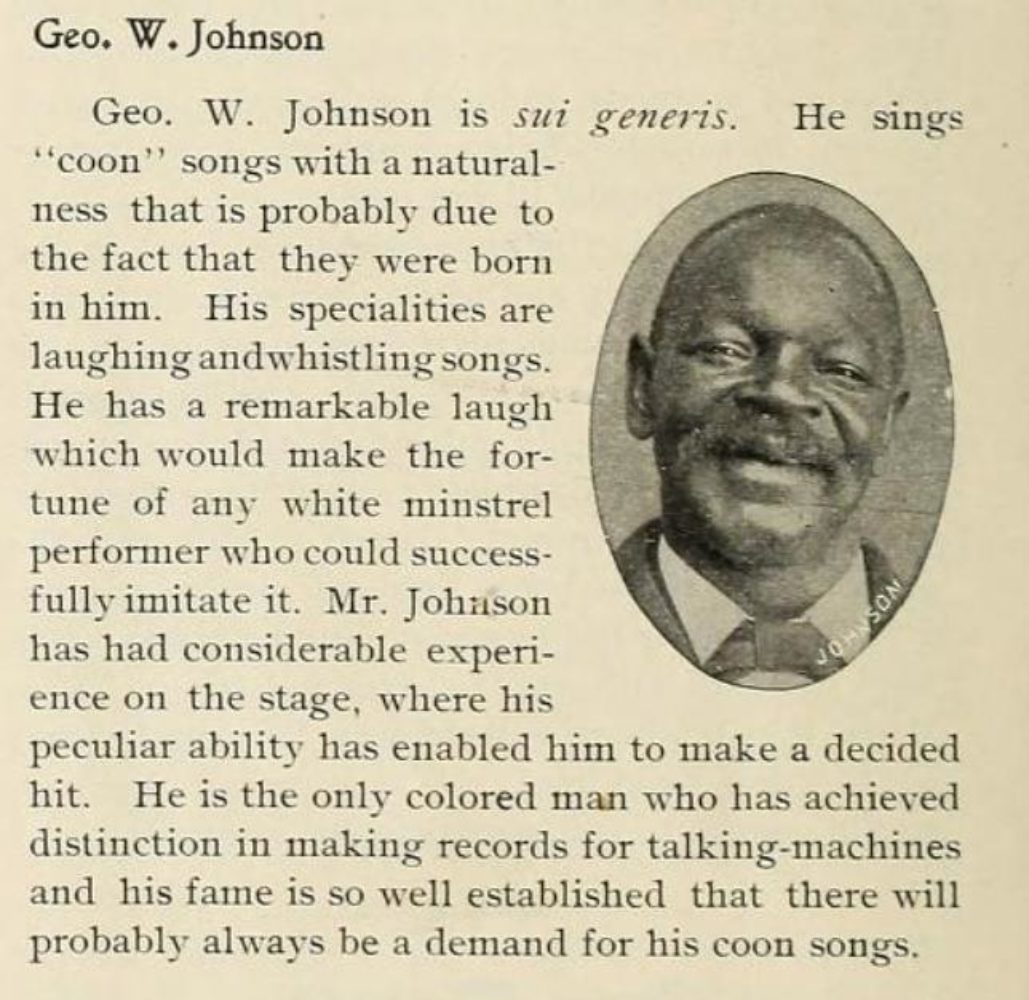I've got to where I am in life not because of something I brought to the world but through something I found - the wealth of African culture.— Hugh Masekela
Birds sing not because they have answers but because they have songs. — African Proverb
At Afropop we celebrate the Black planet everyday. In February in honor of Black History Month, we dipped into our deep archives as we continue to put the pieces of Black history back together through the dominant mode of Black expression and world view: music.
We hope you enjoyed listening to "The Prehistory of New Orleans Music - Treasures from the Hogan," “Bangkok After Dark: The Story of Maurice Rocco,” and "The African-American String Music Tradition." As we segue and kick off Women’s History Month with Cheikha Rimitti, Rebel Queen of Algerian Music, and as a final footnote to Black History Month, let me take a minute to reflect on a character of the past and pay a final tribute to an obscure early pioneer of Black recorded music. Pushed into oblivion, forgotten for the simple fact of the color of his skin, like so many, George Johnson is deserving of a little mention as we continue to reconstruct Black history.
Our story of Black recorded music began in 1891, during the Jim Crow era described as “a period of intense, horrifying racial violence and deliberate, sustained political oppression of African Americans,” by Ferris State University Museum. George Johnson was the first African American recording artist active from the 1890s -1910s just one generation removed from slavery. He was born in Loudoun Country, Virginia, sometime in the 1840s and by the 1870s after the abolition of slavery during reconstruction, he moved north where he worked as a street performer. His musical talents spread by word of mouth and by the time he settled in New York, he was invited to record a song in 1891 because of "his particularly booming voice and whistling abilities" by one of the first American record labels, Columbia. "Since the courts have issued decisions practically confirming to the American Gramophone Company, under its patents, the exclusive right to make and sell duplicate records, the record department of the Columbia Phonograph Company, the sole sales agent for the American Gramophone Company, has assumed a position of great importance in the talking machine world...in addition to having the patent monopoly, the company has practically cornered the talent market about all of the most popular and successful record makers of the day having signed a contract to sing or play exclusively for the Columbia Phonograph Company ". The Phonoscope, Gallery of Talent Employed for Making Records, July 1898. In a matter of a few months the recoding industry was born.
George Johnson, the original African-American recording artist emerged within this context, in the aftermath of the abolition of slavery, and at the moment of the invention of the phonograph and the first record label with the means for reproduction and distribution of music. Up until that point music was only reproduced via sheet music and played live in royal courts, fairs, concert halls, parlors, churches, the circus or minstrel shows, opera, theaters, local bars, speakeasies and homes and other legal and deemed illegal spaces. According to the 1894 issues of The Catalog of Standard New Jersey Records, George Johnson was a busy man and note: “Up to date we have made over 38,000 records of his two songs. The demand is undiminished.” Johnson’s primary biographer, Tim Brooks, finds this figure even higher at 50,000, meaning Johnson sang the same song repeatedly, to meet consumer demand 50,000 times. Johnson had to sing and laugh for every single record he sold, each one of those records had to be recorded live individually through a cone, as mass production was in its infancy. These are just a few examples of why George Johnson is honored by Afropop Worldwide.
In my personal perspective Black music reflects world history and is a product of the Black experience, and every genre we invent comes from the vast spectrum of these realities and circumstances worldwide. For Black communities on the continent and in diaspora, music has profane and sacred functions and it simply confirms our existence. Our musical expression converts energy and maintains Axe, Ase or Acii in my mother tongue Silozi translated as - well being, life force and the power to make things happen. Our music is as a healing balm and the songs created, are sometimes filled with longing for Africa (saudade), and sometimes an expression of our collective cultural memories. More often than not, for people of African descent the world over, life is a joyous celebration of our transformative nature, al´khemi which translated from the Arabic means, The Blacks, Arts and Sciences. McGinness and Proctor told us back in 1973 that melanated people are capable of absorbing heat, and that light is is not reradiated but is converted to rotational and vibrational degrees of freedom. Thus being in rhythmic union with pure energy is the motivation for living, to be in the right "vibe", feel the "beats", "rock n roll", "swing", "jazz it up", you know I can go on. Being with that dark unseen dark matter, the unknown thing called Ntu in Bantu-Kongo, music puts us in tune with the universe says Marimba Ani in her classic on the Implications of African Spirituality in the Diaspora, Let the Circle Be Unbroken. In our musical expression we are able to transmute the horrors into unforgettable songs and dances for our present and futures unknown. This could be how proverbially we turn lead into gold, the negative into positive through dance and music? Without society having dedicated time to reflect, real facts and true knowledge are easily forgotten, rewritten or stolen. Without Black history observation, we would never have space, time or reason to seek out the roots of our cultural practices so that we can continue to be the owners of our own diverse cultural industries.
At Afropop we continue to explore the historical, cultural and social contexts of Black music globally and remap the world. Electronic and popular music the world over have been inspired by Africa and people of African descent, and as listeners know we have the forensic evidence with every show we produce to prove it. The secret African science of music and rhythm as a form of numerical and computational code, directing all aspects of life and death, helped lead enslaved Africans out of the marshes of the south to freedom in the north but also helps the Barotse of southern Africa today, my own nation, out of the flooded plain to the safety of higher ground during their annual flood rituals. Black music and songs are literal, philosophical, imaginary, proverbial, playful, whimsical and catchy to name a few attributes, but we continue to give the world an endless wellspring of life giving vibrations to help others express the challenges and triumphs of life.
Black History Month allows us at Afropop Worldwide the opportunity to continue to shine a spotlight on forgotten heroes, sons and daughters of the dust through African-related recorded music. And it all began with the “Whistling Coon” by George W. Johnson in 1891. This song became one of the most popular songs of the so-called Coon singers of the 1850-’90s. Take a close listen.
He followed it up with the polka-inspired "The Laughing Song," which became the biggest hit of 1891.
George Johnson and many other great treasures of American music would never receive well-deserved opportunities or accolades as, at the time, it was a normal occurrence for Black artists to be discredited, since there was no copyright system in place and no civil rights. Black artists were marginalized and forgotten systematically. Many of their songs were later made American staples, re-released as in the case of “The Laughing Song” renamed "Whoopee" by John Wilfahrt (May 11, 1893 – June 15, 1961).
These events are a footnote in history, but for us at Afropop, we care to understand music on a deeper level through exploring the organic and constructed political and racial underpinnings, to assist us in retracing African music back to its source, but also to encourage self-determination and ownership of masters for today's musicians of African descent.
This early pioneer of recorded music seems lost forever, but he is connected in ways we can never articulate adequately. We are not there yet but we have come a long way from Coon Singers when today Afrobeats stars Burna Boy, Tems and Rema can headline at the NBA All-Star game on February 21, 2023; or Rihanna can perform the Super Bowl's Halftime Show show on February 12, 2023. These are milestones indeed, but African artists with the biggest U.S. records deals cannot compromise artistic freedom to collaborate and produce at will, if they are tied to a million dollar record deal. Some of our greatest black artists from Prince, to Michael and Whitney in one way or another were exploited mind, body and soul and we have many lessons to learn from their experiences which must not be repeated. An artist is a Mu(ntu) a human being and not a product to be exploited, and rigorous touring schedules and unnatural recording deadlines for the sake of profits are unsustainable for anyone. Time will tell what will come of the music industry but we care to know these things at Afropop and pass them on to young artists naive about how the music industry actually works and what a record deal actually means and finally who is actually making all the money without opening their mouth to sing or moving their feet to dance.
To all our young listeners and featured artists, you might believe that today's Black artists just emerged as a natural occurrence, without resistance or struggle over time. But without Black History Month and the George Johnsons of the world, we might not be here, enjoying music today in the comfort of our cars and homes and walking the streets. It is comforting to finally be able to claim and reclaim Black music as significant to global popular culture and that Afropop has played a part in revealing an alternative history of the Black planet. By showcasing African originated music through storytelling, we hope our efforts, not just in February, have highlighted the achievement of so many Black musicians who have endured discrimination and poverty, but left you with an intangible heritage for generations to enjoy.
Black History month, or day, or year, continues to grow globally and is being celebrated and observed in many corners of the globe. Afro-Colombian Day, or Día de la Afrocolombianidad, an annual commemoration of the abolition of slavery in Colombia on May 21, 1851, and in Mexico, June 19 is El Baile de los Negros (The Dance of the Blacks) or El Día del Negros (The Day of the Black). These are just a few examples of this ever expanding consciousness and appreciation of Black culture. We have made strides no doubt since the enslavement of Africans in the Americas, colonialism and apartheid, but we are still in the throes of imperialism and far from making the music industry a more equitable place for Black artists financially, even with the explosion on the Internet with Afrobeats, Amapiano and all the newest genres that keep coming on the scene.
We opened the way for a renewed acknowledgement of the contributions of Black music, culture and people to making the world a better place. We look forward to unearthing more stories to lift up the elders and hope that homegrown African record labels like Mavin Records will protect our new bright stars from predators of all sorts into the future. George Johnson would probably be laughing and love that idea.
A luta continua; vitória é certa
#afropopworldwide #georgejohnsonlaughingsong #worldmusicproductions #firstblackrecord #recordinghistory #blackhistory #jimcrow #saudade #blackexperience #afrikanhistory #whoppee #laughingsong #whistlingsong #americanmusic #rootsofrecordedmusic #whistlingcoon #coonmusic #vaudeville #blackplanet #africanmusicindustry #mavinrecords #burnaboy #rema #rhianna #tems #wizkid #elbailedelosnegros #diadelafrocolombianidad #axe #ashe #acii #letthecirclebeunbroken #africa #afroedenic #melanin #bunsekifukiau #marimbaani #towensmoore #science #myth #worldmusicproductions #mukwaewabeisiyolwe
Related Audio Programs













